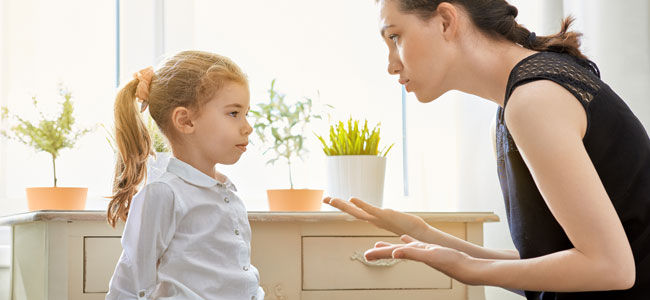How to use Positive Discipline in the education of children and teenagers?
- Adriana Liberato

- Nov 17, 2021
- 4 min read
“Positive Discipline is a technique that aims to educate children with firmness and kindness, avoiding punitive postures and offers of rewards.” - Vanessa Martini

Educating is no easy task! Finding a middle ground between two people who came from different families, educated differently, with different values and a different way of looking at life is a big challenge. When we add external influence to this package, with an extremely seductive showcase called Social Media, this challenge grows exponentially.
For decades, psychologists and pedagogues have developed techniques, programs and tools to help educate children and teenagers. After World War I, two psychiatrists, Dr. Alfred Adler and Dr. Rudolf Dreikurs, after years of research and observation, found out that the most effective way to educate children and young people was through respect, responsibility and resilience. Their approach was very different from conventional teaching and parenting models based in rewards and punishment. The key of their study is encouragement. From their study, Positive Discipline was born.
In the 1980s, this technique gained notoriety when Dr. Jane Nelsen launched the book “Positive Discipline”, based on the studies of psychiatrists Adler and Dreikurs and having as a pillar the rescue of education through affection, example, understanding and respect.
Every child is unique and needs an affectionate perspective, a gentle and, at the same time, firm attitude and a discipline designed exclusively for them. Positive Discipline seeks to educate children with firmness and kindness, developing a sense of responsibility, autonomy, cooperation and respect for themselves and others.

Positive Discipline should be practiced from the first days of the child's life, so that they feel connected with the environment in which the child lives. As children grow and insert themselves in different communities, they will feel like part of it and will become an active and fundamental member for the development of these communities.
Children with a greater understanding of discipline, hierarchy and, above all, who understand the importance of knowledge, dialogue and harmonious living in society - albeit in a playful and unconscious way - learn better and faster.
How to practice Positive Discipline?
“Do you respond to bad behavior with yelling, lecturing, or revoking privileges? You may want to rethink your disciplinary method. "Kids don't learn when they're feeling threatened," says Jane Nelsen.
According to Shauna Shapiro, PhD, professor, speaker, and co-author of Mindful Discipline: A Loving Approach to Setting Limits and Raising an Emotionally Intelligent Child, positive discipline always begins with the parents. “You need to make a change in your own life— begin to integrate mindfulness and compassion”. Your children will learn from this behavior, and they’ll start acting with kindness in return.
Positive discipline brings a very pleasurable dynamic to both children and parents, as it makes each member of the family a potential protagonist and reactivates the relationships of affection within the family without stress, emotional blackmail or threats to achieve order.

I spoke to Fabiola Podolsky, a Brazilian Educator Specialist in Positive Discipline and I extracted from the conversation some practical tips that can help parents to interact with their children, following the principles of Positive Discipline:
Set aside time for the family. It is important to have time dedicated to the family, where everyone is present, without distractions. Talking about what happened during the day, watching a movie together, choosing a game for everyone to participate in and cooking together are some examples of activities that can be done together.
Pay attention when your child is talking to you. They need to realize that and you are interested in what they are talking about.
Show affection and always make it clear how much you love them, and how important they are to you. That way, they will feel loved and welcomed.
Don't worry about showing vulnerability. When you don't know how to handle a situation or don't have an answer to a question, be truthful with it. Your child needs to see that not knowing is not a sign of weakness.
Give your child responsibilities from an early age, according to each stage of their life. This will be crucial for them to develop, create autonomy and understand the dynamics of living in society.
Do not use rewards to obtain a change in your child's behavior. Your child needs to know what your rights and obligations are and, as an integral part of the family, they also have to contribute without having anything in return. This will develop both a sense of responsibility, autonomy and collaboration.
Set limits. Affection and attention cannot be confused with permissiveness. Learn to impose your presence and your voice, creating a sense of hierarchy while maintaining a gentle and firm tone. Limits are essential for shaping a person's character, but without shouting or authoritarianism. Talk, explain the “no” and always open a channel for dialogue.
Education cannot be seen as a 100-meter run, but as a marathon. We need to prepare our children for life. But how to find a balance between affection and firmness, so that they become aware adults about their responsibilities, their roles in the communities in which they operate and how to relate?
For positive discipline to be applied successfully, it is essential that the whole family is involved in the process. The proposal involves a paradigm shift: migrating from an authoritarian culture and anchored in fear to a format of collaborative coexistence, where everyone is heard, respected and develops a sense of community.
Parents need to study the topic and understand what its real impacts are and how to view the evolution of their children and family relationships over time. As every person is unique, it is very important to observe the personality of each member of the family, their tastes and interests and the routine of the house, in order to make a plan that can be followed and that generates good results, being comfortable for everyone.
It’s also important to note that your child won’t immediately change behaviors. “You are planting the seeds of discipline; don’t expect a tree to grow overnight.” - Dr. Ari Brown, M.D., pediatrician and author of Baby 411 and Toddler 411.




Comments